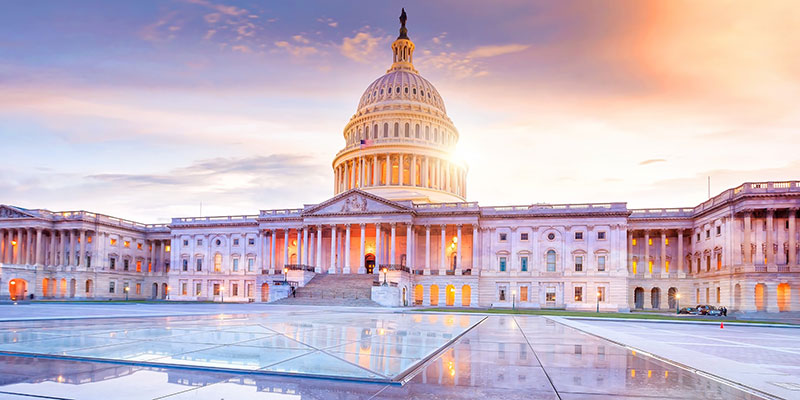Professionals from the water industry will be gathering in Washington this month to learn more about policy achievements over the past two years, as well as the EPA’s proposed new regulations.
Policy developments and proposed EPA regulations are among the topics on tap
Professionals from the water industry will gather in Washington, D.C., during Water Week on April 25-26, 2023. They’ll learn more about policy achievements of the past two years as well as the United States Environmental Protection Agency’s proposed new regulations regarding contaminants.
Meeting With Members of Congress
Attendees will also engage with members of Congress to advocate for measures that ensure communities have access to a reliable and affordable source of clean, safe drinking water.
Participants can discuss water policy priorities with their congressional delegations, get feedback about how current legislative achievements will be implemented, and hear about the outlook for water sustainability.
Water professionals unable to attend in person can participate in local events. They are encouraged to advocate for improved water policies including investment in water infrastructure, building water resilience, making water more affordable, and providing federal funding for water research and development.
Addressing Contaminants in Water
One of the topics on the agenda is per- and polyfluoroalkyl substances (PFAS), also known as forever chemicals due to their persistence in the environment and their tendency to accumulate in the bodies of humans and animals. The water sector has been advocating for tighter legislation on PFAS in wastewater.
In a proposed new rule, the national drinking water standard would limit six PFAS chemicals to 4 parts per trillion, down from 70 parts per trillion.
Policy Innovations to Secure Safe Drinking Water
Additional policies are being implemented to ensure all communities have equal access to safe drinking water. Some issues include:
- Finding ways to fund drinking water infrastructure upgrades to comply with government regulations.
- Protecting water at its source.
- Tightening water quality regulations.
- Promoting more efficient water utility management, which is often compromised due to rising costs, aging infrastructure, changing regulatory requirements, higher customer expectations, and outdated technology.
Bipartisan Infrastructure Law Investments
Securing safe drinking water requires substantial investment. Water infrastructure serves as a critical component in providing affordable, high-quality drinking water. When water infrastructure fails, it can jeopardize environmental and human health. The recently passed Bipartisan Infrastructure Law provides more than $50 billion to the EPA’s programs to replace water pipes; upgrade water, wastewater, and stormwater systems; and to strengthen and rebuild America’s water infrastructure.
This is the single largest investment in water that the federal government has ever made. The budget includes $20 billion for the provision of safe drinking water, $15 billion to replace lead pipes in water service lines, $12 billion to upgrade wastewater and stormwater infrastructure, $1.8 billion to protect waters that are valuable recreational and economic assets, and $135 million for additional water improvements.
Financing Water and Wastewater Infrastructure
While such federal investments will help, funding can still be an obstacle for constructing or upgrading water and wastewater infrastructure. Fluence’s flexible financing packages can help public and private entities achieve their goals. Fluence also offers Water Management Services, delivering water with no upfront infrastructure costs or ongoing maintenance costs. We take care of the financing, construction, and operation. The customer pays only for the clean water.
Contact Fluence to learn more about our water and wastewater treatment technologies, including cost-effective solutions that ensure compliance with more stringent water regulations.

